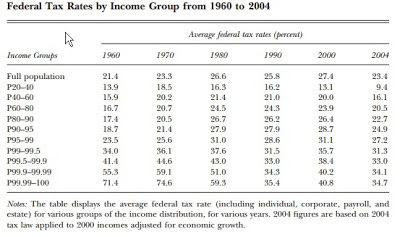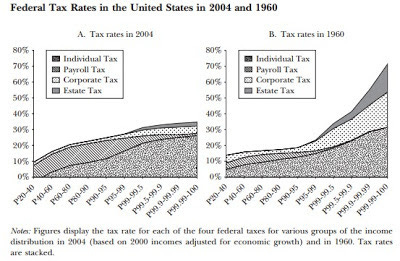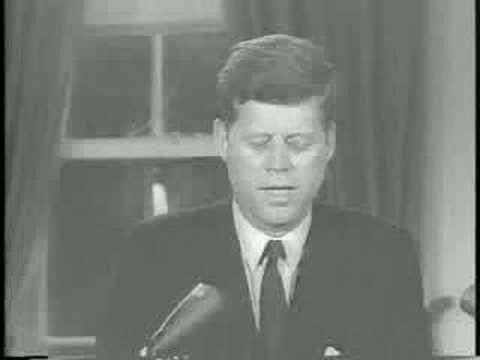JFK Cuts Taxes To Spur Economy and Lift Revenues
Not only is persistent and long-term unemployment a national tragedy, but slow economic growth affects the ability of the nation to fund national defense, to show leadership in the world, and it hinders private long-term investments that perpetuates productivity and economic growth.
A Strong Economy Enables Strong Defense
From Washington Examiner editorial
"The most significant threat to our national security is our debt," then-Chairman of the Joint Chiefs of Staff Mike Mullen told CNN in 2010. "That's why it's so important that the economy move in the right direction, because the strength and the support and the resources that our military uses are directly related to the health of our economy over time."
John F. Kennedy Cuts Taxes in 1963 To Spur Private Economy, Improve National Security and Ultimately to Raise Revenue
About the speech from Ralph Reiland at American Spectator:
President John F. Kennedy delivered a major address to the Economic Club of New York at the Waldorf-Astoria Hotel on December 14, 1962. The unemployment rate that month was 5.5 percent. The annual inflation rate was 1.3 percent.
President Kennedy began his address to the Economic Club of New York by stating that.....national security "will not be determined by military or diplomatic moves alone," he stated. "It will be affected by the decisions of finance ministers as well as by the decisions of Secretaries of State and Secretaries of Defense, by the deployment of fiscal and monetary weapons as well as by military weapons, and, above all, by the strength of this nation's economy as well as by the strength of our defenses."
To strengthen the economy, Kennedy called tax cuts on business and all income groups, a less expansionary government, a simplified tax code that downsized loopholes and special privileges, and the removal of obstacles to private initiative.
The "most direct and significant kind of federal action aiding economic growth is to make possible an increase in private consumption and investment demand -- to cut the fetters which hold back private spending," he asserted.
In contrast, a course of "increasing federal expenditures more rapidly than necessary," he warned, "would soon demoralize both the government and our economy."
Kennedy called for "an across-the-board, top-to-bottom cut in personal and corporate income taxes" in order to reduce "the deterrents to private initiative which are imposed by our current tax system" -- a federal tax system that "exerts too heavy a drag on growth," "siphons out of the private economy too large a share of personal and business purchasing power," and "reduces the financial incentive for personal effort, investment, and risk-taking."
Kennedy's bottom line? "In short," he stated, "to increase demand and lift the economy, the federal government's most useful role is not to rush into a program of excessive increases in public expenditures, but to expand the initiatives and opportunities for private expenditures."
And the impact of tax cuts on deficits? "Our true choice is not between tax reduction, on the one hand, and the avoidance of large federal deficits on the other," he declared.
The"paradoxical truth" is that "tax rates are too high today and tax revenues are too low and the soundest way to raise revenues in the long run is to cut the rates now."
Despite Much Higher Tax Brackets, Only Taxes of the Top 1% Were Higher in 1960 than Today
Top income tax brackets in 1960s were up to 91% but effective taxes are similar to taxes today EXCEPT the top 1% who did indeed pay about 31% vs 25% in income taxes (not that different from today). See the table below which shows all Federal taxes allocated to various income brackets. Only the top 1% paid slightly more income tax in 1960 but corporate and estate taxes hurt that top group disproportionately. Why do you think JFK wanted to reduce tax rates? It was because high total taxes on the top 1% and especially corporate taxes were hurting business!
From a Tax Progressivity study at Berkeley (click to enlarge):

Total Federal Tax Rates By Income Group from 1960 to 2004
(P20-40, for example, means the income group from the 20 to 40 percentile)Have a look below and compare total Federal taxes in 1960 and in 2004 from the same study (click to enlarge). The study allocated income, estate, corporate and payroll taxes to the various income groups. Corporate and Estate Taxes were a huge portion of Federal Taxes in 1960. For the bottom 99%, Social Security Payroll taxes have made taxes higher now for most people compared to 1960.

Federal Tax Rates in The United States in 2004 and 1960Maybe I need to devote a blog to the subject of taxes in 1960 versus today?


